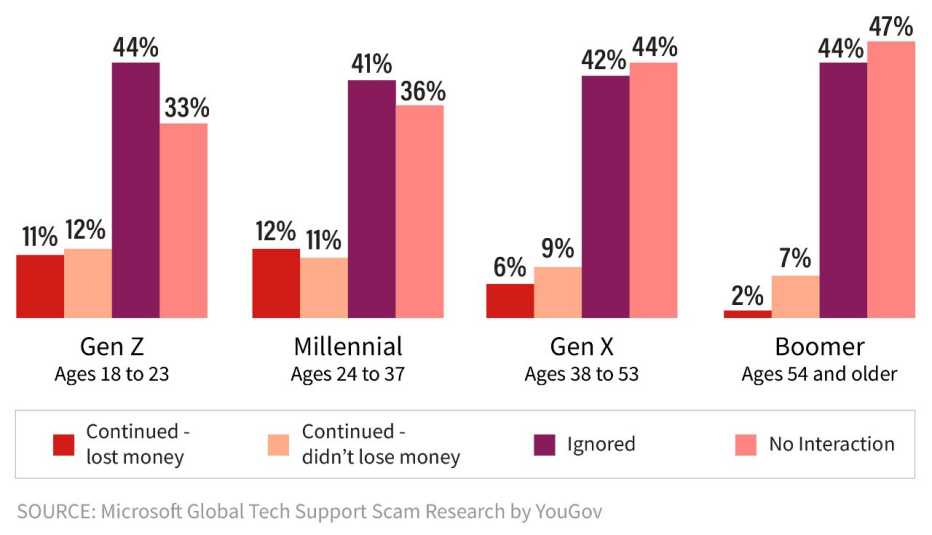Staying Fit
OK, boomers, ready for some good news? Adults age 54 and older were less likely to lose hundreds or thousands of dollars to tech-support scammers, a new global survey for Microsoft finds.
These unscrupulous scammers pretend you have a computer problem that they can fix, but they're not your friends. They're foes. And they're trying to grab your cash, credit card numbers, passwords or other sensitive information. Some scammers direct you to a sketchy website. Worse, the bad actors may seek remote access to your computer to drain your online financial accounts.


AARP Membership— $12 for your first year when you sign up for Automatic Renewal
Get instant access to members-only products and hundreds of discounts, a free second membership, and a subscription to AARP the Magazine.
According to the survey, younger adults — especially men — were most apt to lose money to tech-support scammers. Altogether, 16,254 adults in the U.S. and 15 other countries were surveyed.


Boomers less apt to lose money to tech support scams
The graph shows how consumers in different age groups responded to these scammers. Some ignored the scammer or had no interaction. Others continued/engaged with the scammer, and some of them lost money.
Boomers are less susceptible to tech-support scams, Microsoft says, because younger people are online for longer periods of time and more often engage in potentially risky online behavior — such as downloading movies and music, sharing their email in exchange for content, or visiting so-called “torrent” sites to download illegally copied video games and other entertainment offerings.
The survey shows that most people ignore — or have no further interaction with — tech-support scammers. But among people who were contacted and kept dealing with the scammers:
- Millennials, ages 24 to 37, lost money 12 percent of the time.
- Generation Z, ages 18 to 23, lost money 11 percent of the time.
- Generation X, ages 38 to 53, lost money 6 percent of the time.
- Boomers and other older adults, ages 54-plus, lost money 2 percent of the time.
Overall, 3 in 5 respondents said they had encountered a tech-support scam in the previous 12 months. One out of 6 people kept engaging with these scammers, and some of them suffered a financial hit.
All consumers — regardless of age — should follow cybersecurity protocols. Those who were victims paid out at least $200, on average, and many victims “faced repeat scam interactions” to tech-support scammers, says Mary Jo Schrade, a Microsoft attorney who leads its effort to address tech-support scams. Here's her blog post on the topic. Reports filed with Microsoft show that “quite a few unlucky victims even lost thousands of dollars for fake technical support to fix nonexistent problems,” Schrade adds.




































































